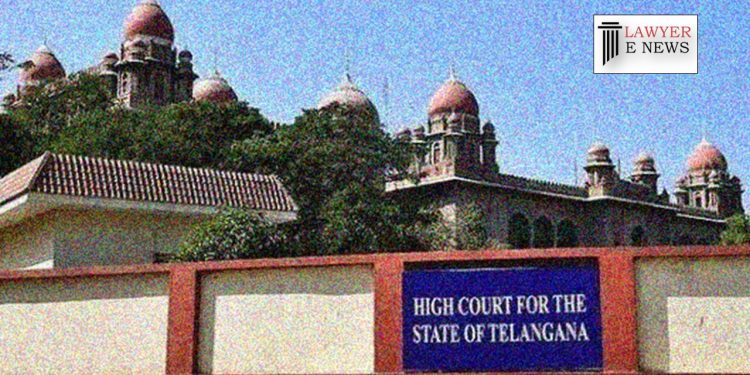-
by sayum
14 February 2026 2:22 PM



The Telangana High Court today upheld the conviction of the accused in the notorious dacoity at M/s. Rajlakshmi Jewellers, while modifying their life sentences to ten years in light of their reformation and time already served.
The bench, comprising Hon’ble Sri Justice K. Lakshman and Hon’ble Smt. Justice K. Sujana, affirmed the conviction of Gopal Ramana Shetty and Mini Gopal under Section 395 of the Indian Penal Code for their involvement in an armed heist that resulted in the theft of valuables worth approximately Rs. 1.5 Crores.
The appellants were accused of orchestrating a dacoity with a gang on December 26, 2003, targeting the prominent Rajlakshmi Jewellers in Hyderabad. The primary issues in their appeal included challenges to the sufficiency of evidence, especially concerning the identification process and the alleged delays in the investigation and registration of the FIR.
Identification and Arrest: The court highlighted the effectiveness of the identification parade and the subsequent arrests based on a confession by one of the accused, which led to the recovery of part of the stolen property.
Evidence and Procedural Challenges: Addressing concerns over procedural delays, the High Court deemed the delays reasonable, attributing them to the complexities of the case. It stressed that such delays were not fatal to the prosecution’s ability to present a coherent case.
Sentencing Review: Originally sentenced to life imprisonment, the sentences were reduced to ten years after reviewing principles of proportionality, reformation, and the appellants’ behavior during incarceration.
Decision: While the conviction for dacoity under Section 395 IPC was upheld, the sentence was modified to ten years, with directions for immediate release if the accused are not required for other legal proceedings, acknowledging the substantial portion of the sentence already served.
Date of Decision: May 3, 2024
Gopal Ramana Shetty, Mini Gopal v. State of Telangana
